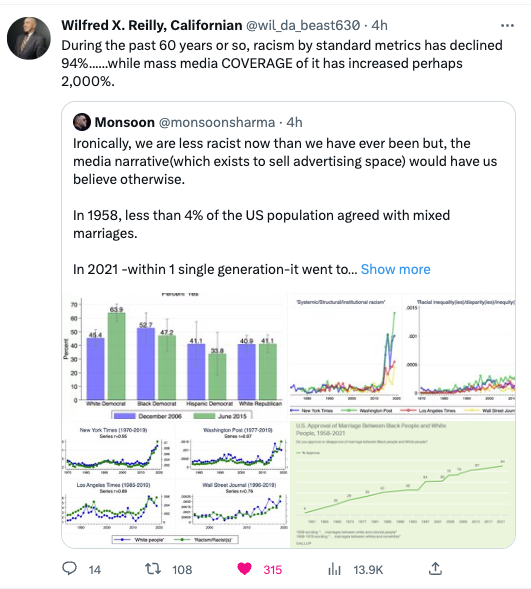DEI as the Antithesis of Free Speech
Randy Wayne, a biology professor at Cornell University has written an op-ed at the New York Post: "Cornell wants to ‘express itself’ but ‘diversity, equity, inclusion’ are in the way."
The goal of DEI activism, however, is the antithesis of free expression. Activists tend to believe they already know what is true and demonstrate little need for discussions that can change hearts and minds. They readily say so themselves.
Ibram X. Kendi, the most prominent leader in the DEI movement, for instance, concedes in his seminal book “How to be an Antiracist” — “An activist produces power and policy change, not mental change . . . [and the] Educational and moral suasion is not only a failed strategy. It is a suicidal strategy.”
Unlike the civil- and gay-rights movements, which required free speech to change legislation, the DEI movement requires the cancellation of free speech to influence power and policy. This is because the DEI bureaucrats are activists-in-disguise, at once unable and unwilling to defend their ideology with reasoned arguments based on truth.
This was demonstrated last month in a debate at MIT on a resolution that academic DEI programs should be abolished. None of the approximately 90 people in DEI positions at MIT chose to defend their ideology by participating in the debate.
Wayne's concerns remind me that the gurus of antiracism (Robin DiAngelo, Ibram Kendi) refuse to debate their ideas in public. You won't find them fielding questions and objections to their ideas on the Internet. They are preachers, not teachers. For years, I have used this as my rule of thumb: If someone refuses to debate their ideas, it is because they are afraid of scrutiny because they know don't have good ideas. Apparently, this is also the case at Cornell, where none of the 90 DEI administrators was willing to show up to discuss the merits of DEI.


